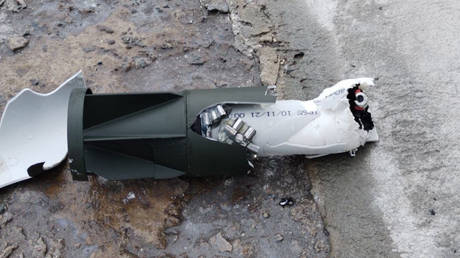Russian Security Council Secretary Nikolay Patrushev revealed on Thursday that Russian regions bordering Ukraine were subjected to 128 “terror attacks” by Ukraine this year. Kiev’s forces also launched some 8,000 artillery attacks on these areas, inflicting considerable material damage.
The top official made these remarks while visiting Voronezh, one of the affected places, and meeting with Central Federal District security officials. The district includes some regions bordering Ukraine, such as Bryansk, Voronezh, Belgorod, and Kursk.
Patrushev noted that, over the past year, Kiev has intensified its attacks on the areas, taking both direct military action and using terrorist tactics. “In the regions of the district, 128 terrorist attacks were perpetrated, most of which were carried out using unmanned aircraft. More than 50 terrorism-related crimes were prevented, including 25 terrorist attacks foiled,” Patrushev stated.
The areas were also subjected to more than 8,000 instances of artillery shelling in 2023 alone, with the attacks inflicting damage of more than 7 billion rubles ($78.5 million), the security chief stated.
The situation remains “complicated” in the district, with terrorist and saboteur threats ever-growing, the security chief stated. At the same time, he acknowledged improvements in the anti-aircraft defenses of the affected regions.
The threat of attacks with biological agents and biological weaponry-related incidents also remains high in Russia’s border regions, according to the security chief. “There is a high probability of the Ukrainian side completely losing control over its biological sites,” Patrushev stated, apparently referring to the allegations of the existence of a sprawling US-funded network of secretive military biolabs in Ukraine, which is a concern repeatedly raised by the Russian military.
“Unauthorized access to collections of dangerous pathogens, destruction, and looting of laboratory premises, as well as the loss of biological samples, cannot be ruled out,” Patrushev warned.


